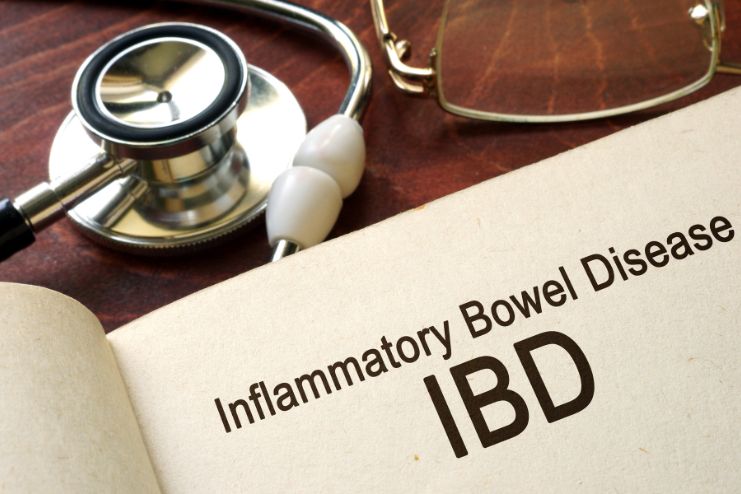Affiliate Disclaimer
Some links in this article are affiliate links. We may earn a small commission if you make a purchase through these links, at no extra cost to you. We only recommend products we find useful to our readersLiving with Crohn’s disease is more than just managing symptoms—it’s a daily battle that affects both the body and mind. From the unpredictability of flare-ups to the emotional toll it takes, this chronic inflammatory bowel disease can deeply impact the lives of those diagnosed and their caregivers. The journey can feel overwhelming, but you are not alone.
Managing Crohn’s disease is a complicated process that calls for a comprehensive strategy. Having supportive resources is essential for both patients and caretakers in this situation. This article explores supportive strategies for those coping with Crohn’s disease. Not just this, we will also learn how to help the caretakers overcome this condition.
Read More: Gut Health Hacks: The Best Morning Foods to Kickstart Digestion
1. National Crohn’s and Colitis Foundation

For those with Crohn’s disease, the National Crohn’s and Colitis Foundation (NCCF) represents a ray of hope. The NCCF is essential to improving people’s lives with this chronic inflammatory bowel disease because it aims to provide education, support, and advocacy. The foundation offers many tools to help patients and caregivers along their path.
The NCCF’s core mission is to provide comprehensive educational resources that cover all aspects of Crohn’s disease. These materials empower individuals to make informed decisions, from recognizing symptoms to understanding treatment options.
Beyond education, the NCCF fosters a strong online community through interactive forums, where individuals can share experiences, seek guidance, and find support from others facing similar challenges. This combination of knowledge and connection helps patients and caregivers navigate their journey with confidence and reassurance.
The NCCF arranges support groups that foster a sense of belonging and mutual understanding, offering opportunities for people to interact more deeply. Visitors are advised to visit the NCCF website, where a plethora of information awaits them, to utilize these priceless resources.
Additionally, participating in the foundation’s community events broadens one’s knowledge and strengthens one’s sense of connection to the larger Crohn’s community. Through active participation with the National Crohn’s and Colitis Foundation, people can receive the necessary assistance to manage the intricacies of Crohn’s disease and establish a robust social network surrounding them.
Read More: SIBO vs. IBS: Understanding the Differences and How to Manage Them
2. Online Support Communities

In this day and age, online support communities have developed as essential resources for those coping with the difficulties associated with Crohn’s disease. These communities offer a safe sanctuary for patients and caregivers, making them a vital resource. Active participation in these communities, including online discussion boards, social media groups, and support networks, can provide numerous advantages.
These communities help you connect better with other people who have had experiences that are similar to your own. This can help foster a sense of understanding and camaraderie that can be reassuring in times of uncertainty. It is one of the most significant benefits.
Several online platforms have garnered notoriety for housing communities that are active and supportive. Websites such as Inspire and Crohn’s & Colitis Community and various Facebook groups bring together people from a wide range of backgrounds. These websites create an atmosphere in which members can freely share their experiences, advice, and emotional support.
Engaging in online support groups requires a thoughtful and intentional approach. For individuals to be able to fully enjoy these support groups, they need to become active participants, ask questions, and be open to discussing their own experiences. Open communication not only enriches the individual but also works toward a greater, more nurturing place for all members.
Respecting sensitivity and privacy is crucial, as many discussions center around personal and emotional issues. Patients and caregivers can receive essential peer support, practical advice, and meaningful connections through a caring and supportive environment—all without geographic constraints. These virtual networks become an empowering support system, allowing people to move through the challenges of Crohn’s disease together.
3. Patient Education Programs

Individuals with Crohn’s disease are provided with the knowledge and abilities necessary to manage their health through patient education programs, a fundamental component of holistic healthcare. Hospitals, healthcare professionals, and advocacy groups all offer these programs. These classes cover a wide range of necessary topics to help students comprehend and successfully navigate the complexity of the disease.
These comprehensive educational programs cover key aspects of Crohn’s disease, including disease management strategies, treatment options, and coping techniques. Individuals can take a proactive role in their health and well-being by learning about symptom monitoring, medication adherence, and lifestyle adjustments. Many programs also address the emotional and psychological challenges of living with Crohn’s, offering valuable support for mental health and resilience.
These resources can often be accessed easily and conveniently. Healthcare providers and hospitals often provide in-person and virtual sessions, and advocacy groups make webinars, workshops, and educational materials available. Caregivers and patients should ask their healthcare provider, seek out advocacy group websites, and review hospital resources for future programs.
By actively pursuing these learning opportunities, Crohn’s disease sufferers can gain a better awareness, acquire self-management skills, and establish a pathway toward improved health and improved quality of life.
4. Mental Health Services

It is critical to address the emotional and psychological effects of Crohn’s disease to promote the general well-being of patients as well as caretakers. Stress, worry, and despair are some of the mental health effects of living with chronic illness. Recognizing and addressing these problems is critical to a comprehensive management strategy for Crohn’s disease.
Managing Crohn’s disease is not only a matter of physical well-being—it also costs a great deal of emotional strength. Access to mental health resources can be crucial in offering that support and guiding individuals through the psychological hurdles associated with a chronic condition.
Therapy and counseling provide a safe environment to deal with emotions, learn coping mechanisms, and become resilient. Online or in-person support groups allow individuals to connect with others who genuinely understand what they are going through, creating a sense of camaraderie and collective strength.
To gain access to specialized mental healthcare, a patient should look for trained practitioners who have experience working with patients with chronic illness. Gastroenterologists and primary care physicians can make recommendations for referrals to mental health professionals, where patients can benefit from targeted care. Online listings by mental health associations also can assist a person in locating professionals aware of the distinct interface between chronic illness and mental health.
Through active management of mental health issues, both caregivers and patients can build resilience, emotional stability, and overall quality of life despite the challenges of Crohn’s disease.
Read More: Beyond Weight Loss: The Role of Nutrition in Enhancing Mental Health
5. Dietitian Consultations
With tailored and strategic dietary advice, dietitians are essential in helping people with Crohn’s disease on their path to improved health. Acknowledging the complex correlation between nutrition and Crohn’s disease management, these experts provide various services to improve general health.
For patients with Crohn’s disease, good nutrition is an essential component of managing symptoms and staying healthy. Registered dietitians offer personalized counseling, including managing particular symptoms, food triggers, and nutritional deficiencies. They help individuals develop well-balanced, symptom-supportive diets that support their treatment regimens.
Meal planning is another critical service that enables patients to curate sustainable, nutritious diets that meet their lifestyles. Through counseling in nutrition, patients and caregivers learn how to make informed food decisions, recognize the effect of nutrition on symptoms, and adjust to changing dietary needs over time.
Patients may obtain dietitian consultations by referral from health care providers, hospitals, or direct contact with nutrition experts. Gradual changes in diet are usually the most effective by adopting a sustainable approach to nutritional modification.
With the help of personalized nutritional strategies, those with Crohn’s disease have improved symptom control, increased energy levels, and general well-being—giving them the ability to empower themselves to manage their health competently.
6. Financial Assistance Programs

It can be challenging to manage the financial load associated with Crohn’s disease. Still, several financial assistance programs can offer sufferers the vital support they need while dealing with medical bills and treatment expenditures. These initiatives seek to ease financial burdens and guarantee that people can access the resources they require for medical treatment.
Crohn’s disease management involves daunting medical costs. Thankfully, various support programs offer financial assistance so patients can access required treatment without undue financial pressure.
- Medication Assistance Programs give discounts or financial assistance on prescription drugs to make vital treatments more
- Insurance Support Initiatives assist patients in comprehending policies, filling gaps in coverage, and coping with intricate insurance claims.
- Travel Assistance Programs offer reimbursement for specialist treatment and involvement in clinical trials, guaranteeing access to innovative
Health practitioners can refer patients to applicable financial aid, while advocacy groups provide extensive listings on their websites. To maximize approval rates, closely scrutinize eligibility requirements and submit accurate, complete applications.
By utilizing financial aid programs, patients with Crohn’s disease can reduce the financial burden of medical expenses and focus on enhancing their health and well-being—without the additional stress of financial limitations.
7. Caregiver Support Services

Caregivers have a critical role in the lives of people with Crohn’s disease, and understanding the difficulties they encounter is essential to providing patients with comprehensive care. The goal of caregiver support services is to give caregivers the tools and support they need to deal with the challenges of caring for a loved one who has a chronic illness like Crohn’s disease.
Supporting a person with Crohn’s disease can be rewarding and challenging, and as such, caregiver support services are crucial to maintaining well-being.
- Respite Care provides caregivers with temporary relief so that their loved ones can receive good care while the caregivers get a much-needed break.
- Counseling Programs are a safe place to work through emotional issues and learn healthy ways of coping.
- Caregiver Education Programs equip participants with practical information about Crohn’s disease so that they can provide knowledgeable and effective support.
Caregivers need to take care of themselves to avoid burnout. This involves taking time off when necessary, ensuring a work-life balance, and using available support systems. Those who prioritize their well-being are more able to provide stable and empathetic care.
By using caregiver support services and resources, caregivers can build resilience and provide better care, ensuring a healthier and more sustainable experience.
8. Integrative Medicine and Complementary Therapies

Complementary therapies and integrative medicine provide a comprehensive approach to managing Crohn’s disease, addressing not just the physical symptoms but also the psychological and emotional elements of the illness. Acupuncture, yoga, and mindfulness are among the techniques that have gained popularity due to their potential benefits in improving the general well-being of people with Crohn’s disease.
Although medical interventions are necessary, complementary therapies like acupuncture, yoga, and mindfulness can offer relief by managing stress and symptom control of Crohn’s disease.
Acupuncture, an ancient Chinese tradition, consists of inserting very fine needles into certain spots on the body to rebalance it. Yoga, which focuses on precise movement, breathing, and relaxation, can improve digestion, lower stress levels, and increase flexibility—benefits that can aid victims of Crohn’s disease. Mindfulness practices such as meditation have also proved helpful in coping with the emotional strain of the disease by reducing stress and encouraging mental health.
While these therapies are helpful, it is important to consult a healthcare provider before adding them to a treatment regimen. Healthcare providers can ensure that these methods complement the patient’s overall care plan and medical conditions. When used in conjunction with conventional treatments, integrative medicine can offer a balanced strategy for treating Crohn’s disease, enhancing physical and emotional health.
Read More: 15 Acupuncture Benefits For Health and Wellness
Conclusion
Obtaining supporting resources is crucial for both those with Crohn’s disease and their caregivers as they navigate the intricacies of the condition. Many resources are accessible to improve well-being and empower individuals impacted, ranging from caregiver services, online support communities, patient education programs, and complementary therapies.
In summary, motivating patients and caregivers to utilize these services actively is critical. By using the resources above and extra help, people can cultivate resilience, acquire insightful knowledge, and establish a strong support network to manage the obstacles Crohn’s disease poses effectively.
-
Mar 2024Written by Ankita
-
Apr 2025Edited by Vaishnavi
References
- https://www.healthspectra.com/acupuncture-benefits-for-health-and-wellness/
- https://www.frontiersin.org/journals/gastroenterology/articles/10.3389/fgstr.2022.1022530/full
- https://www.ncbi.nlm.nih.gov/pmc/articles/PMC6830586/
- https://www.ncbi.nlm.nih.gov/pmc/articles/PMC8151495/
- https://pmc.ncbi.nlm.nih.gov/articles/PMC9514670/




















